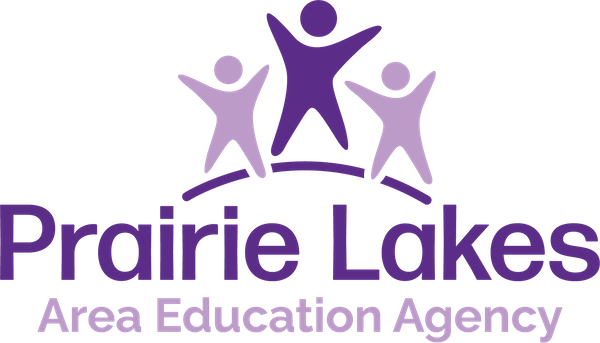The statistics are alarming. Since 2018, suicide has been the second leading cause of death for adolescents between the ages 10-14 and 15-24. More than 1 in 5 students in the schools served by Prairie Lakes Area Education Agency (AEA) who completed the Iowa Youth Survey in 2018 reported that they had seriously considered killing themselves in the 12 months prior. The Social-Emotional-Behavioral Health Team at Prairie Lakes AEA has been facilitating trainings for educators the past three years to address those statistics. So when the agency learned about a federal grant opportunity to sustain and expand upon those trainings, team members jumped in to write a grant proposal to establish the Prairie Lakes AEA Mental Health Awareness Training Project. The agency recently learned it was one of 145 projects who were awarded this grant and is the only recipient in Iowa.
The Mental Health Awareness Training (MHAT) grant, from the Substance Abuse and Mental Health Services Administration (SAMHSA), totals $125,000 each year for five years. The funding will primarily be used to train educators and school staff on how to recognize the signs and symptoms of mental health disorders, and support students with serious mental illness (SMI) and/or serious emotional disturbances (SED). The training also teaches the skills needed to respond and reach out to provide initial help and support to someone who may be developing a mental health or substance use challenge, or experiencing a mental health crisis.
“We applied for the grant to sustain the support that we’ve already developed and have been providing to educators,” said Courtney Cook, the Social-Emotional-Behavioral Health Coordinator at Prairie Lakes AEA. “This grant will enable districts to train their school staff, high school students, and other members of the school community to provide a more comprehensive mental health support system, as well as strengthen the awareness of resources and connections with our community agencies.”
The primary trainings being implemented are Youth and Child Mental Health First Aid (MHFA), which are programs developed by the National Council for Mental Wellbeing, and designed for adults supporting youth in the 5-12 and 12-18 age groups. New to the agency will be Adult Mental First Aid to better equip administrators and leadership teams in supporting their peers and educators. Beyond MHFA and general crisis intervention trainings, the agency also offers offers Suicide Risk Assessment workshops for small teams within the district to develop and implement a systematic plan for assessment and intervention of students at risk for suicide in their school.
Over 1,500 educators, in Prairie Lakes AEA, have participated in MHFA training over the past three years. Agency team members have also supported 11 high schools in implementing Teen Mental Health First Aid, a curriculum and training designed for sophomores, juniors, and seniors to notice and respond to signs and symptoms experienced by their peers and to connect them to adults trained in YMHFA. Prior to the grant, the cost of tMHFA was the responsibility of the district. A key motivator to apply for the SAMHSA grant was to alleviate that cost so that all high schools had access to the program. Thanks to this grant, the agency expects to train close to 10,000 additional educators and students over the next five years. Another focus of the grant is to continue to establish linkages among the Iowa Mental Health & Disability Regions (MHDS) and community agencies to enhance referral processes for accessing mental health services; and provide education regarding community resources in general.
With the shortage of substitute teachers in many school districts, the training offered is a blend of virtual, face-to-face, and even some outside the school day, which helps keep the teachers in the classroom as much as possible.
“Education is a tough profession, and the past year has taken an even bigger toll on the mental well-being of our teachers,” Cook said. “These trainings will help our educators recognize and support the mental health and well-being of their students and their school staff. We hope that once districts have trained their staff, that this funding will allow us to branch into the school community, which could include the school board, coaches, parents, paramedics, and others who support the well-being of students and staff.”
